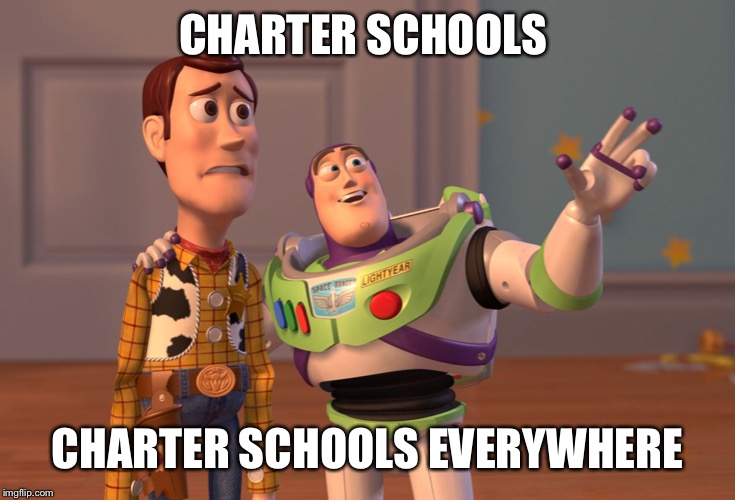This article on school privatization efforts in Tennessee originally appeared in The Progressive.
What’s the cure for COVID-19 in schools? Charter schools, of course!
Budget cuts on the horizon because of the economic damage caused by weeks of stay-at-home orders? Sounds like your districts need more charter schools.
Concerned about what the 2020-21 school year might look like?
Charter. Schools.
When it comes to public schools, Tennessee’s answer to the COVID-19 pandemic has been clear and simple: Privatization.
First, in mid-March, Governor Bill Lee chose to include millions of dollars for a new voucher scheme in his emergency budget before the legislature left Nashville due to the coronavirus. How’d he pay for it? By cutting a planned investment in teacher compensation.
Now, as Tennessee’s two largest school districts, Memphis and Nashville, face significant budget shortfalls for the upcoming school year, the possibility of the state forcing unwanted charter schools on them looms large. These new charters would eat up valuable district resources at a time when funding is scarce. They also will come in the two districts where the state’s “Education Savings Account” voucher scheme will pilfer public dollars for privatizers.
In 2019, the newly-minted governor pushed for and won approval of a State Charter School Commission. This new body will have broad authority to grant charters to schools—even those schools denied a charter by local school districts. If the state body approved a charter school, the commission would manage the school, but the funding for that school would come from the local district.
In other words, whether or not Nashville or Memphis want more charter schools, the Charter Commission can approve and locate a charter in any district in the state without the approval or consent of the local board—then mandate that the local board spend funds to support it.
Fast forward to May 2020.
Right now, Education Secretary Betsy DeVos is pushing a scheme whereby states can acquire additional federal stimulus funds for education if they agree to advance a school privatization agenda.
Enter the Tennessee Charter School Commission. While Nashville and Memphis have taken a cautious approach to charter school approval in recent years, the Charter Commission, stacked with Governor Lee’s handpicked privatization proponents, seems primed to put charters where they aren’t wanted.
Obligating districts to fund charters would also divert money that they need to provide resources for students if a second wave of COVID-19 wreaks havoc this fall. Nashville is already staring down a $100 million budget shortfall for education, and Memphis is considering a tax increase just to maintain its school system.
How much of a financial bite will new charter schools take from these struggling districts?
That’s hard to calculate exactly. But in 2014, a study conducted by independent research firm MGT of America predicted that “new charter schools will, with nearly 100 percent certainty, have a negative fiscal impact” on Nashville’s school district. MGT calculated a price tag that could exceed $300 million in direct costs to the city’s public schools over a five-year period.
A more recent study in North Carolina found that the financial burden of adding charter schools to one urban county school district, Durham, was between $500 and $700 per student. In rural districts in the state with fewer charters, the impact was less negative but still significant—up to $300 per student.
Added to the estimated cost of charter schools in Tennessee is a whole new disaster: a voucher scheme. Though this program was ruled unconstitutional by a judge on May 5 (and will no longer start next year, as initially planned), it revealed the true aims of education reformers in the state.
By forcing charters on cash-strapped districts, DeVos and Lee are using the chaos caused by COVID-19 to advance a privatization agenda. Something similar happened when public schools were hollowed out in New Orleans, post-Katrina.
DeVos, in a statement on May 4, put it diplomatically:
“The current disruption to the normal model is reaffirming something I have said for years. We must rethink education to better the realities of the twenty-first century. This is the time for local education leaders to unleash their creativity and ingenuity.”
Lee, a longtime financial supporter of DeVos, recently made the same point, in language that’s just as mystifying. “The Department of Education has a clear directive to challenge the status quo by developing solutions that best advocate for students and teachers,” Lee said.
The COVID-19 crisis has created new opportunities for profit-seeking privatizers to prey on public education. We must continue shining a light on those working to undermine public schools, so that we can continue fighting for the public good.

For more on education politics and policy in Tennessee, follow @TNEdReport
Your support — $5 or more today — makes publishing education news possible.